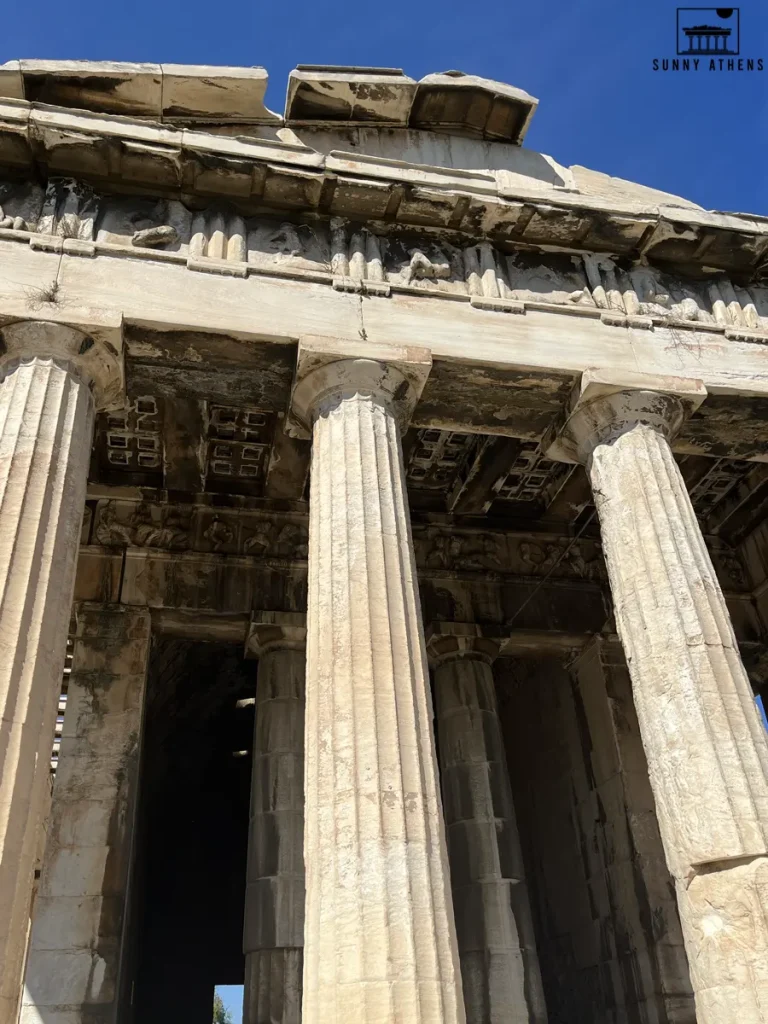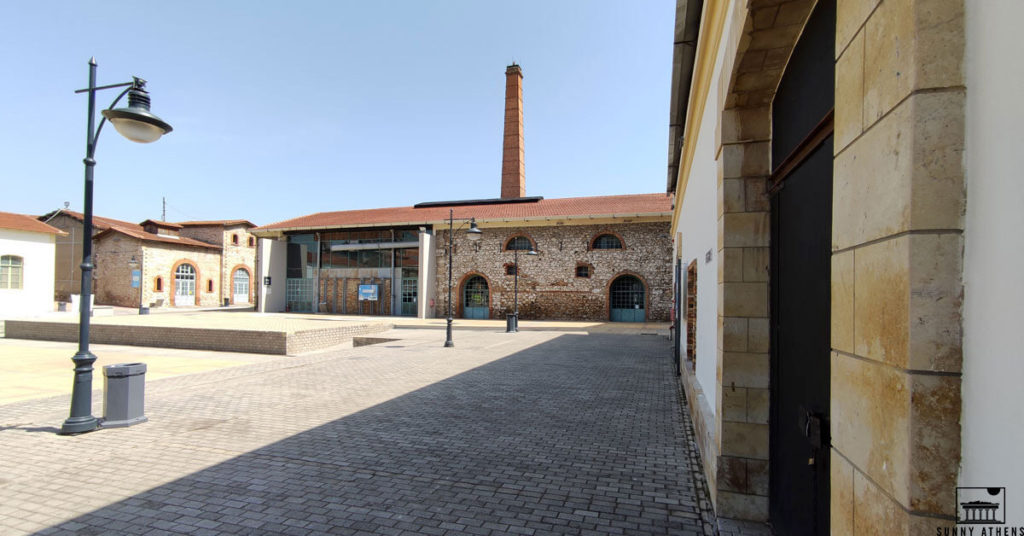You know the Acropolis, the Plaka, and the museums, but here are a few facts about Athens that may have slipped past you.
Last updated: 16 Dec 2023
1. Athens is not the First Capital of Greece!

On the contrary, it comes fourth, after Nafplio, Corinth, and Aegina had preceded it.
It became a capital in 1834 and today has a population of about 4 million.
The center of the modern city is Syntagma Square, where you can find the old royal palace, which now houses the Parliament, and other 19th-century public buildings.
If you want to visit the scenic Nafplio or Aegina Island, check out the best day trips from Athens.
2. Athens’s Origins go Back as far as 5,000 Years Ago!

Thus, it is among the ten oldest cities in the world.
At the same time, it is Europe’s oldest capital city.
The other nine cities are: 1) Aleppo, Syria. 2) Beirut, Lebanon. 3) Jericho, West Bank. 4) Byblos, Lebanon. 5) Plovdiv, Bulgaria. 6) Sidon, Lebanon. 7) Faiyum, Egypt. 8) Argos, Greece, and 9) Susa, Iran.
3. Athens has the Most Theatrical Stages in the World!

Specifically, there are more than 150 theatrical stages in town, more than in much bigger cities like New York or London.
For example, only in 2015, 1.228 play performances for adults, 314 for children, 104 monologues, 168 musicals, and 40 stand-up comedies took place.
4. Athenian Oranges: Look, but do not Eat!

When you walk in the center of Athens, you cannot miss the orange-like trees that line up along the streets.
Well, no matter how delicious they look, do not eat them!
They are bitter oranges, not edible as they are.
However, you can try them as a tasty traditional bitter orange spoon-sweet.
For more information, check out the delicious local food you should taste in Athens and the finest local desserts like baklava.
5. Facts about Athens: How the Town got its name!

According to the myth, the city’s king was Cecrops, a mythical creature half man and half snake.
Thus, the area was known as Cecropia, after his name.
Then, the twelve Gods of Olympus decided to have a city named after them to protect it.
In exchange, the citizens should offer them sacrifices.
The two gods who decided to contest for the right to name the city were Athena and Poseidon; they had to present a gift to the people who were the ones to vote and decide.
So first, Poseidon, the God of the seas, came up.
He stroked the ground with his trident, and a splash of salted water appeared.
Then, he explained to the citizens that his gift would make them the most important naval power, bringing them glory and victory in wars.

When Athena’s turn came, she hit her spear on a rock, and the first-ever olive tree appeared.
She explained that this evergreen tree was the symbol of peace, glory, and prosperity.
It could provide oil that would feed people, clean, and heal them.
Furthermore, they could use it in oil lamps during the night.
With its hardwood, they could build boats, and it would eventually make them rich through peace.
The final vote was for Athena, the goddess of wisdom, so the city took its name after her.
She always had Athens under her protection, and this legend became the theme of the sculpture on the West pediment of the Parthenon, Athena’s temple!
6. The World’s First Meteorological Station is in Athens!

It is an octagonal marble building, known as the “Tower of the Winds”.
We don’t know the precise date of the tower’s construction, but most scholars suggest the 2nd century BCE.
Each one of the eight sides corresponded to the eight wind deities.
At the top, there was a weather vane, a bronze Triton.
Turning by the wind, it pointed to the section that corresponded to the wind direction.
Moreover, there were nine sundials around it, and there was a hydraulic (water) clock in its interior.
It was there to indicate the time at night and on days with not enough sunlight.
7. The Word Idiot has its Roots in Ancient Athens!

The interest of Greeks in politics and public affairs goes back to the Classical period and the Athenian democracy.
In ancient Athens, citizens – free, native, adult, and male – had many opportunities to vote, make decisions, and elect the people to represent them.
They were aware of all the aspects of the political life of their city and valued civic participation.
At the same time, they were criticizing non-participants by calling them “ιδιώτες” (idiotes).
Athenians used the word to describe those who were only preoccupied with their selfish interests, almost exclusively with themselves, instead of public affairs.
They saw them as having poor judgment and education, and this meaning has traveled through time to our days.
In modern use, an idiot is foolish, but the word originally meant someone ignorant with poor judgment.
8. Open Air Cinemas since 1904!

The first places in Athens that featured a purely cinematic spectacle were the Athenian squares.
In 1904, the first systematic screenings began in the cafes of Syntagma Square and Zappeion.
After all, these two spaces gathered most of the people of the capital.
Nowadays, there are still many Open Air Cinemas, a trademark of the Athenian summer.
9. Ban the Famous Men!

During the years of the Athenian democracy, a procedure called “ostracismos” was taking place by the assembly of the Athenians.
The results led the man with the most votes into exile for ten years.
Politicians usually used it to remove their rivals and stay in Athens without serious political opposition.
When the city held ostracism, there was no list.
Instead, each voter wrote on an ostrakon, a fragment of pottery, the name of the man he wanted to leave.
At least 6,000 had to vote; the man with the most votes was exiled.
Some indeed voted against private enemies, but men who attracted large numbers of votes were public figures.
Most voters simply wrote a man’s name, sometimes adding his father’s name or the name of the area he came from.
Several thousand of these ostraka survive, and you can see them in the Museum of the Ancient Agora (Stoa of Attalos).
It’s a museum with exciting exhibits, all closely connected with the Athenian Democracy and the Agora, which was the “heart” of the city’s public life.
10. Facts about Athens: In the 19th century, gas was lighting the capital!

The production plant was the famous Gazi, which operated until 1982.
The degraded area has always been a ghetto of workers and the poor of Athens, with the addition of economic migrants.
Today, the old factory has been turned into a place for cultural events.
At the same time, in the surrounding area, you will find numerous bars and cafes.
11. Don’t Even Think to Move!

Perhaps the second most photographed sight in Athens, after the Acropolis, is the Evzones in front of the Tomb of the Unknown Soldier.
It takes tough training in the army, both physically and mentally, to become a member of this Guard.
They must stand without moving for many hours, while one should not even move his eyeballs under all the different weather conditions.
The evzones guard the Presidential Palace and the Tomb of the Unknown Soldier around the clock.
They also raise the Greek flag at the Acropolis right after sunrise every Sunday and lower it at sundown.
In addition, they accompany the president on all his official visits abroad, welcome foreign leaders, and participate in two annual parades.
12. Stables in Kolonaki!

Kolonaki, one of the most luxurious districts of Athens, was not always full of mansions.
During the Ottoman period and the first years of the newly formed state, it was an area full of vineyards and stables!
The character it has today, with its expensive brands and luxury restaurants, began to appear during the first years of the 20th century and especially after 1945.
Make Your Trip Easier
Airport Transfer
If you want to get to and from Athens Airport with peace of mind, I recommend pre-booking your taxi with Welcome Pickups. Their flat rate is a few euros more expensive than random taxis, but it is totally worth it. They use local, English-speaking drivers, who will wait for you even if your flight is delayed and introduce you to the city during your ride.
Accommodation
I always book my accommodation with a reliable service like Booking.com. They offer a price guarantee and 24/7 support in case of any problems with your hotel. Always make sure you read reviews from other guests before booking.
Activities
From day trips to Greek islands to Acropolis Guided Tours, GetYourGuide will help you find some unique ideas for your trip.
Car Rental
If you decide to rent a car while in Athens, check Rentalcars. It compares the most reliable companies and returns the best prices with free cancellation.
Free Athens Tours
If you have limited time or want a local guide to introduce you to the city, check GuruWalk. They offer free tours, and at the end, you give them the amount you think is fair.
Travel Insurance
Travel insurance will protect you if you get sick or injured while abroad, or if you lose your luggage or your flight is delayed. On my trips, I use SafetyWing as it’s affordable and has a simple claims process.
Sunny Athens is reader-supported. Some links on this page may be affiliate links, meaning we may earn a small commission at no extra cost to you, if you make a purchase. This helps support our work and keeps our travel tips honest and independent. Learn more in Advertise Disclosure.






